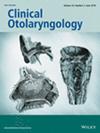Quality of Information Provided by Artificial Intelligence Chatbots Surrounding the Reconstructive Surgery for Head and Neck Cancer: A Comparative Analysis Between ChatGPT4 and Claude2
Abstract
Introduction
Artificial Intelligences (AIs) are changing the way information is accessed and consumed globally. This study aims to evaluate the information quality provided by AIs ChatGPT4 and Claude2 concerning reconstructive surgery for head and neck cancer.
Methods
Thirty questions on reconstructive surgery for head and neck cancer were directed to both AIs and 16 head and neck surgeons assessed the responses using the QAMAI questionnaire. A 5-point Likert scale was used to assess accuracy, clarity, relevance, completeness, sources, and usefulness. Questions were categorised into those suitable for patients (group 1) and those for surgeons (group 2). AI responses were compared using t-Student and McNemar tests. Surgeon score agreement was measured with intraclass correlation coefficient, and readability was assessed with Flesch–Kincaid Grade Level (FKGL).
Results
ChatGPT4 and Claude2 had similar overall mean scores of accuracy, clarity, relevance, completeness and usefulness, while Claude2 outperformed ChatGPT4 in sources (110.0 vs. 92.1, p < 0.001). Considering the group 2, Claude2 showed significantly lower accuracy and completeness scores compared to ChatGPT4 (p = 0.003 and p = 0.002, respectively). Regarding readability, ChatGPT4 presented lower complexity than Claude2 (FKGL mean score 4.57 vs. 6.05, p < 0.001) requiring an easy-fairly easy English in 93% of cases.
Conclusion
Our findings indicate that neither chatbot exhibits a decisive superiority in all aspects. Nonetheless, ChatGPT4 demonstrates greater accuracy and comprehensiveness for specific types of questions and the simpler language used may aid patient inquiries. However, many evaluators disagree with chatbot information, highlighting that AI systems cannot serve as a substitute for advice from medical professionals.


 求助内容:
求助内容: 应助结果提醒方式:
应助结果提醒方式:


